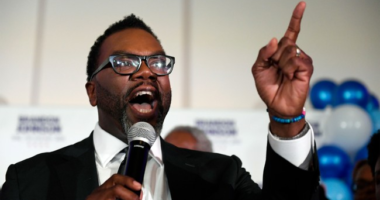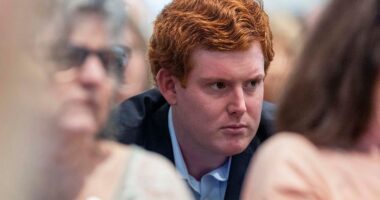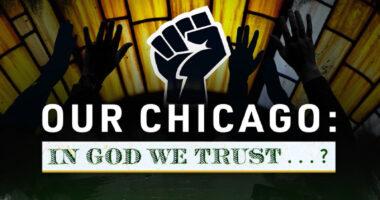Last Updated on November 4, 2024
Since 1973, over 65 million unborn children have lost their lives to abortion in the United States alone. This number not only reflects a statistic, but a profound shift in cultural values—a transformation rooted in ideas that have deadly consequences.
We are currently existing in what is known as a “Culture of Death.” This term did not come about by chance; instead, it was deliberately brought into society by revolutionaries. These individuals initiated a philosophical and cultural proxy war aimed at undermining Christianity, the value of life, and the conventional family system.
To understand abortion today, we must look at the ideologies that preceded it—tracing back to figures like Margaret Sanger and Alfred Kinsey, whose legacies left an indelible mark on modern America.
Abortion has been repackaged as a right and freedom, yet in reality, it stands as an abomination against life and a grievous sin against God. In scripture, God warns against the sacrifice of children. As a society we have reached a point where we label evil things as good.
Instead of calling abortion for what it truly is, murder– we use terms like “freedom” and “choice” to describe the most vile thing a person can do– killing your own unborn child.
Margaret Sanger, founder of Planned Parenthood, propagated eugenics, a pseudoscience that attempted to “improve” the human race by keeping certain groups from reproducing. Reproductive suppression was, for Sanger, the way to produce what she dubbed “a race of thoroughbreds.” She saw immigrants, minorities, and people with disabilities as “unfit” and publicly endorsed sterilization laws.
She opened the first birth control clinic in Brooklyn, deliberately targeting poverty-stricken neighborhoods with a high immigrant population, asserting that these groups were a threat to society’s gene pool.
Sanger was not alone in her beliefs. Alfred Kinsey, often deemed the “Father of the Sexual Revolution,” took these ideas further. Through controversial research on human sexuality, Kinsey dismantled traditional moral frameworks, advocating for a worldview in which sexual expression knew no bounds, even for children.
His work laid the groundwork for the sexual liberation movement that would eventually seep into educational systems across America. Planned Parenthood would soon become one of the foremost institutions promoting this ideology, providing not only abortion services but also supporting comprehensive sex education in schools—often introducing graphic content to young children.
Today, Planned Parenthood is one of the most well-funded nonprofits in history, with billion-dollar revenues and growing influence. Their initiatives extend beyond abortion, now providing cross-sex hormones and puberty blockers for youth and playing a significant role in the modern gender revolution. The organization that once sought to control reproduction now seeks to redefine biological and moral boundaries entirely.
Just as in 1930s Germany, silence from spiritual leaders has contributed to this cultural shift. Many pastors of the 1930s remained silent and watched as fascism swept to power, unwilling to confront evil. Excuses ranged from fear of persecution to a misguided belief in pacifism.
Today, we hear similar rationales from church leaders, who either ignore or justify their silence on issues like abortion. Yet, as Christians, we are called to stand against such darkness. When we fail to do so, we implicitly allow injustice to thrive, abdicating our role as defenders of life and truth.
The story of The White Rose Resistance in 1930s Germany illustrates the courage that is required to confront evil. Hans and Sophie Scholl, risked their lives to expose the atrocities of that regime by handing out leaflets condemning Hitler’s actions.
As a result, Hans and Sophie were arrested and sentenced to death by guillotine. Sophie Scholl, before her execution, asked, “How can we expect righteousness to prevail when there is hardly anyone willing to give themselves up individually to a righteous cause?”
Abortion is modern society’s silent genocide—a systematic killing of the most vulnerable that we rationalize, ignore, or disguise as choice. Today, regimes that perpetrate holocausts are right to be universally hated and condemned.
But Sanger and Planned Parenthood have been responsible for the genocide of tens of millions of the most vulnerable and marginalized people in the world- unborn children. Two genocides, both the result of the same bad ideas, and the same movement, that has resulted in such deadly consequences and countless victims. One of these genocides continues, while one of them ended because good people did the right thing.
Ideas have consequences, and bad ideas have victims. Sanger, Kinsey, and their contemporaries were revolutionaries who understood the importance of culture. They changed the conversation, creating narratives around “freedom” and “rights” while pushing an agenda that would erode the values upon which our society was founded.
The cultural shift they initiated has had devastating consequences. Abortion, once viewed as morally reprehensible, is now defended as a fundamental right. This shift reflects a broader moral decline—one where human life is devalued, and the line between right and wrong is blurred beyond recognition.
Today, abortion is treated as a “sacrament” by some on the political Left, defended with religious fervor and promoted as an unalienable right. Yet, our society’s greatness depends on how it treats its most vulnerable. By failing to protect the unborn, we compromise our moral integrity and invite judgment upon ourselves, just as God warned the ancient Israelites.
To reverse this culture of death, believers must speak up. We must challenge the narrative that killing the unborn is a right and expose the lies perpetuated by organizations like Planned Parenthood. The abortion industry continues to thrive because too many people remain silent.
If Christians cannot stand against this culture of death, who will?
We must stand firm, as Hans and Sophie did, knowing that the cost of silence is far greater than the cost of speaking out. As Sophie said, “What does my death matter if, through us, thousands of people are awakened and stirred to action?”
This is not merely a political battle; it is a spiritual one. Our task is to defend the sanctity of life and restore a culture that respects and values the image of God in every human being. The choice is before us—to remain silent or to rise and defend the defenseless, living out our faith in truth and courage.

















